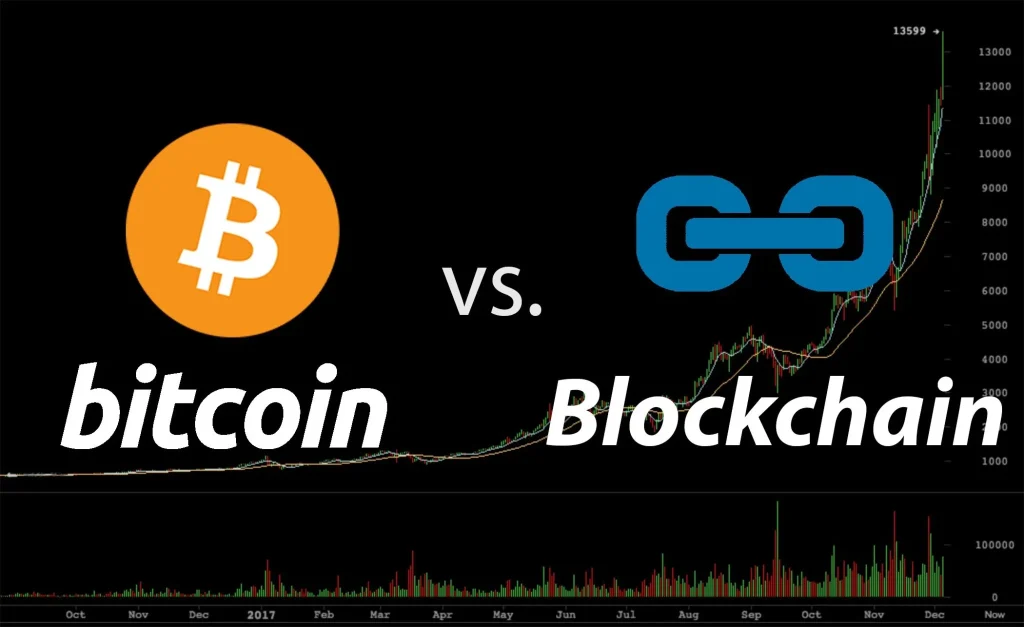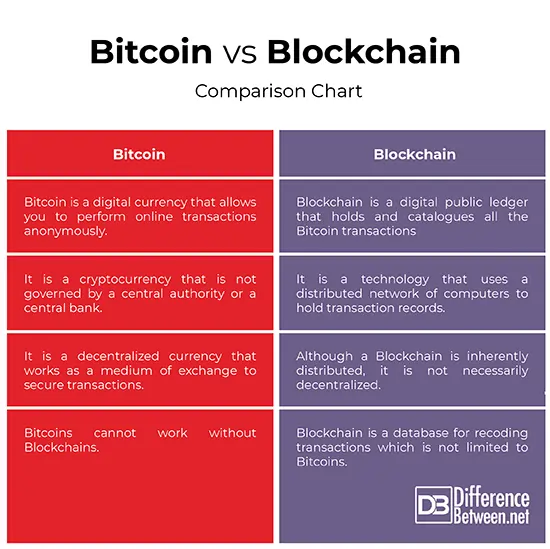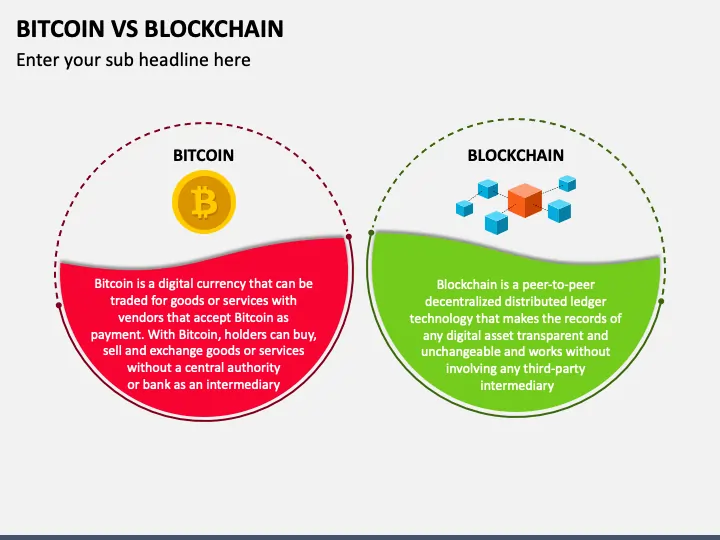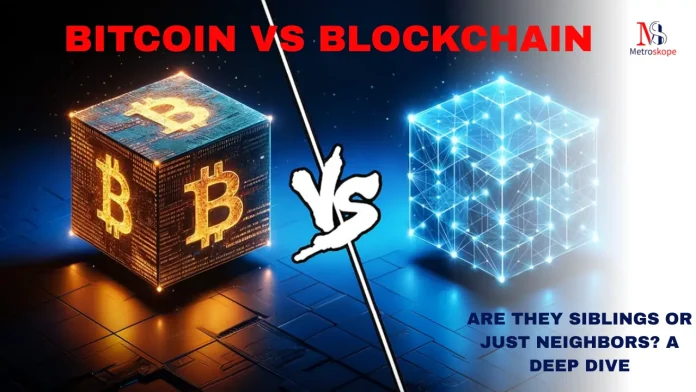People often confuse bitcoin vs blockchain, using the terms interchangeably.
But these are Not the same. Bitcoin is the first and most iconic cryptocurrency. difference between bitcoin and blockchain Blockchain is the transformative technology underneath it.
This article offers blockchain explained clearly and explores their past, present, and future relationship.
Bitcoin vs Blockchain
- Bitcoin is a digital currency launched in 2009 by Satoshi Nakamoto. is bitcoin a blockchain It’s a decentralized medium of value where ownership is recorded on a public ledger.
- Blockchain is a distributed ledger technology, a secure and tamper‑proof database that is bitcoin a blockchain operates across a network. Bitcoin was its first successful application, but the potential goes far beyond cryptocurrency.
In simple terms: Blockchain is the platform, Bitcoin is the user of the platform.

Blockchain Explained: The Technology at the Core
How Blockchain Works
- Act like a shared spreadsheet across nodes
- Each block contains a batch of data
- Every block links to the previous by a cryptographic hash—making tampering nearly impossible.
- Consensus mechanisms—Proof of Work (PoW), Proof of Stake (PoS)—ensure data integrity.
- Immutability, Transparency, Decentralization – hallmarks of blockchain explained
Used beyond Bitcoin in finance, supply chains, healthcare, and more.
Bitcoin 101: The Trailblazing Crypto
- Runs on a public blockchain with 10‑minute block times.
- Limited supply capped at 21 million BTC—earning it the moniker “digital gold.”
- Uses PoW mining; miners earn BTC rewards.
- Funds transfer without a middleman, using addresses.
Bitcoin’s innovation popularized blockchain—but limitations on speed, energy, scale remain key challenges.
Historical DNA: How Bitcoin Built the Blockchain
Bitcoin’s launch brought breakthroughs:
- Decentralized public ledger
- Mining incentives for security
- Cryptographic chaining of blocks
- Decentralized consensus—trust without intermediaries.
These elements laid the foundation for today’s blockchain explained ecosystem.
Practical Differences: Feature-by-Feature
| Feature | Bitcoin (Blockchain) | General Blockchain |
|---|---|---|
| Primary Purpose | Peer-to-peer digital currency | Generic record-keeping & trust automation |
| Consensus Mechanism | PoW, energy-intensive | PoW, PoS, delegated PoS, etc. |
| Speed & Cost | ~4–7 TPS, high fees | Faster, cheaper (private/PoS chains) |
| Use Cases | Store of value, payments | Supply chain, identity, smart contracts |
| Privacy Setting | Pseudonymous public ledger | Public, private, permissioned environments |
While Bitcoin excels in digital currency, blockchain explained is the universal engine for many other uses.
Real-World Applications Beyond Bitcoin
Businesses now leverage blockchain in diverse contexts:

- Finance & DeFi: Lending, trading, insurance without banks
- Supply Chain: Traceable, transparent provenance (e.g., Walmart)
- Identity Systems: User-managed IDs, academic credentials
- Healthcare Records: Immutable patient histories
- Voting Platforms: Tamper-resistant elections
- Digital Ownership: NFTs proving authenticity
Beyond Bitcoin, blockchain explained revolutionizes processes across industries.
Challenges & Considerations
Scalability
Bitcoin handles ~3–7 TPS; Visa does ~24,000 TPS. Solutions like Lightning Network help but aren’t universal.
Energy Use
PoW consumes massive electricity only partially mitigated by PoS alternatives.
Smart Contract Risks
Code bugs can lock funds permanently—audits are vital.
Privacy
Public blockchains reveal transaction trails. Private or hybrid models increasingly used.

Future Outlook: Coexistence or Convergence?
- Layer‑2 scaling (e.g., Lightning, rollups) will boost Bitcoin.
- Interoperability among chains via Polkadot, Cosmos.
- Regulation: Governments balancing innovation with security.
- Web3 & DAOs: Blockchain-enabled governance.
- AI & Blockchain: AI models trained on verified data.
Bitcoin will remain a leader in digital assets, while general blockchains continue to power global digital transformation.
FAQs
Q: Is blockchain only about Bitcoin?
A: No—Bitcoin is just one application of blockchain, which is used in multiple industries.
Q: Can Bitcoin exist without blockchain?
A: No. Bitcoin uses blockchain as its foundational ledger.
Q: What’s better: Bitcoin or another blockchain?
A: It depends—Bitcoin for digital gold; others for smart contracts or enterprise use.
Q: Is blockchain secure?
Q: How can I get involved?
A: Start with wallets, testnets, courses (Coursera, Udemy), or simple smart contracts.
Who Truly Relies on Whom?
They aren’t siblings with similar DNA—they have a parent-child relationship:
- Blockchain (the parent): the game-changing technology.
- Bitcoin (the pioneering child): its first, most impactful application—but just the beginning.
By grasping bitcoin vs blockchain, you see how one opened the door—and the other is now building entire cities of innovation on the foundation.

